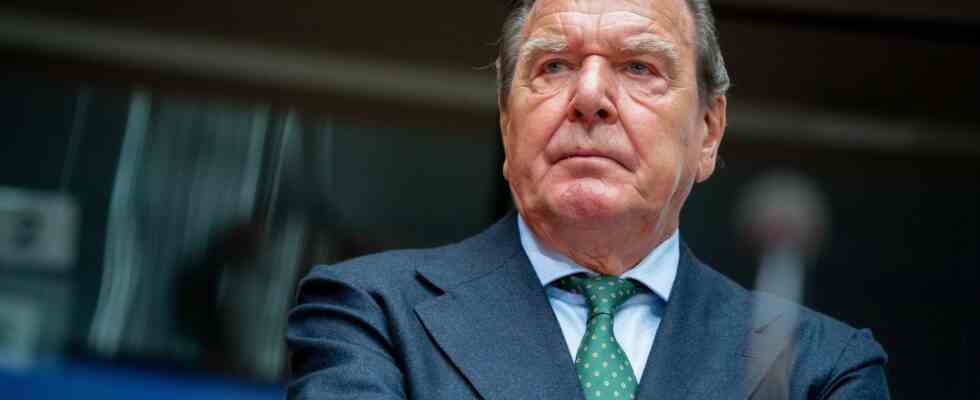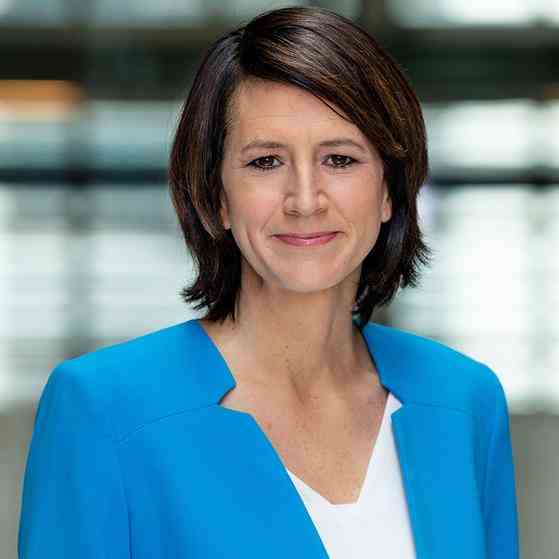analysis
Status: 07/14/2022 08:32 a.m
The SPD starts its party expulsion proceedings against Schröder. But it is doubtful whether the party will actually get rid of the former chancellor. Where is the problem?
The deep admiration of the past has turned into cold aversion: the SPD has come a long way in its relationship with Gerhard Schröder. If you put your ear to the grass roots of the party and ask the grassroots, you will get an idea of how deep the frustration runs: “Gerhard Schröder not only reveals the values of the SPD, but also of Europe,” says Jan Bühlbecker, chairman of the SPD -Local Association Wattenscheid-Mitte in conversation with the ARD Capital Studio.
Many are so outraged by the ex-chancellor, who is apparently unshakable in his loyalty to Putin, that they want to get rid of him: a total of 17 SPD associations have applied for a party order procedure, and most want his expulsion. This is the first time that the arbitration commission of the Hanover sub-district, Schröder’s home district, is dealing with this.
It is clear that the former chancellor expected a lot from his comrades. But the question now is whether that is enough to get him kicked out of the party.
Putin’s friend
After the end of his chancellorship in autumn 2005, it was only a few months before the declared friend of Russia’s President Putin became the head of the Nord Stream AG supervisory board. Since then, Schröder has held various positions as a gas lobbyist, repeating what he said about Putin as a “flawless democrat,” and shortly before the start of his war of aggression, he accused Ukraine of “saber-rattling” rather than the man in the Kremlin. And he sneered at all those who warned of a Russian invasion: “Not everyone who thinks so is a foreign policy strategist.”
The roll of the eyes in the SPD
A short time later, exactly this feared invasion of Ukraine took place – ordered by Schröder’s friend Putin. A man who no doubt considered himself a strategist had become a nuisance for his party. A party that already had the reputation of being too pro-Russian. And which has been working feverishly since the end of February to reinvent its Ostpolitik.
Anyone within the SPD who speaks to comrades about former chancellor Schröder today always gets the same reaction, as well as a rolling eye: they distance themselves, condemn their business dealings with Russia, and emphasize how isolated he is now within the party. But there is also a lot of shock about what has become of the SPD chancellor. Schröder was a companion and sponsor for many.
Klingbeil’s Convulsion
This shock can also be felt in SPD party leader Lars Klingbeil, who was very close to the ex-chancellor for years.
He personally shaped him, but it’s no longer about his feelings, Klingbeil made clear at a press conference. It is now a matter of taking a clear stance. And this is: Schröder should stop doing business with Russia, resign from his posts, otherwise he would no longer have any place in the SPD.
Crossed red lines
Schröder has repeatedly crossed red lines in recent months. Be it with his visit to Moscow, an alleged attempt at mediation, not discussed with the chancellor’s office. He was not traveling on behalf of the federal government, it was repeatedly said grudgingly from those close to Olaf Scholz. An Instagram photo of Schröder’s wife, which showed her praying in a hotel room in front of Red Square, garnished the action. Internally, it caused even more shaking of heads in the SPD.
But more affronts followed, such as an interview in the New York Times in which Schröder openly admitted that he had no regrets about doing business with Putin. “Mea culpa” is just not his thing.
Criticism by Esken
The party leader Saskia Esken then burst the collar. She made it clear that one should stop seeing him as an elder statesman – as a former chancellor. He earns his money working for Russian state companies.
Schröder has announced that he will be stepping down from the supervisory board of the Russian state-owned company Rosneft, probably mainly for fear of EU sanctions. However, the ex-chancellor only recently made it clear in the FAZ that he is still maintaining his friendship with Putin and believes in Russia’s willingness to negotiate.
The process could go on for years
Schröder has already gotten rid of a lot: honorary membership of Borussia Dortmund, honorary citizenship of the city of Hanover, his office and his staff in the Bundestag – is he now also losing his party card? To do this, it must be proven that he has deliberately acted in a way that is harmful to the party. Which, as other cases show, is extremely complicated from a legal point of view. And he could probably best be reached with his conflict of interests as a politician and gas lobbyist.
The arbitral tribunal must communicate its decision within three weeks of the oral hearing. But with appeal negotiations, the process could drag on for years. It is almost impossible for Schröder to appear at the hearing himself. “He disregards the democratic institutions of the SPD and shows no respect,” says SPD member Bühlbecker from Wattenscheid. But Schröder had already made it clear that “Mea culpa” is just not his thing.
Gerhard Schröder and the SPD – chronicle of an alienation
Kai Küstner, ARD Berlin, 14.7.2022 8:48 a.m


